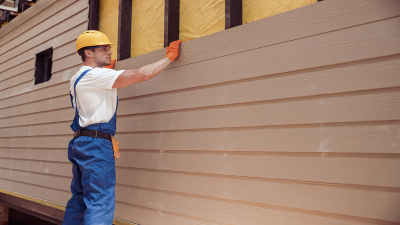1. Licensing, Insurance, and Credentials: Non-Negotiable Basics
l Licensing: Always verify that your contractor holds valid local or state licensing (e.g., a CSLB license in California). This ensures they meet legal standards and have proven expertise.
l Insurance: Request proof of liability insurance and workers’ compensation. Accidents happen on job sites—protect yourself from liability for injuries or property damage.
l Certifications: Look for contractors certified by siding manufacturers (e.g., James Hardie Elite Preferred Contractors or CertainTeed SELECT™ Pro installers). These designations signal specialized training and adherence to best practices.
2. Experience and Track Record: Past Performance Matters
l Portfolio Review: Ask for before/after photos of recent projects or tour a local job site. Pay attention to craftsmanship: Are seams tight? Is the siding properly aligned? Are trim details professionally finished?
l Tenure in Business: A contractor with 5+ years in the industry is more likely to handle unexpected challenges (e.g., hidden structural issues, weather delays).
l Specialization: Siding comes in many materials (vinyl, fiber cement, wood, metal). Ensure your contractor has proven experience with your desired material—for example, fiber cement requires different installation techniques than vinyl.
3. Transparent Communication and Detailed Proposals
l Clear Expectations: The best contractors listen to your goals and provide honest feedback. Avoid those who push high-pressure sales or dismiss your concerns.
l Written Proposals: Insist on a detailed, itemized quote that includes:
· Material costs (brand, type, color, quantity)
· Labor fees and project timeline
· Permit costs (if required)
· Warranty details (both manufacturer and workmanship warranties)
l Communication Style: Do they respond promptly? Are they willing to explain processes in plain language? Good communication prevents misunderstandings and keeps projects on track.
4. Customer Reviews and Referrals: Trust the Crowd
l Online Reviews: Check Google, Yelp, or Angie’s List for patterns in feedback. Look for phrases like “professional team,” “on-time completion,” or “quality results.”
l Referrals: Ask friends, neighbors, or real estate agents for recommendations. Personal referrals often lead to the most reliable contractors.
l BBB Rating: A high rating with the Better Business Bureau indicates a history of resolving customer issues fairly.
5. Warranty and Post-Installation Support
l Workmanship Warranty: Reputable contractors offer at least a 2-year warranty on labor. Some may extend this to 5 years or more for premium projects.
l Material Warranty: Manufacturers like Mastic or LP SmartSide offer 25+ year warranties on siding durability and color retention. Ensure your contractor registers the warranty on your behalf.
l Post-Installation Service: Will they address minor issues (e.g., loose siding panels) after payment? A commitment to post-project support is a sign of professionalism.
Take Action: Your Perfect Siding Contractor Awaits
Don’t settle for mediocrity—your home’s exterior is too important. Use these criteria to shortlist contractors, then interview 3-4 candidates to gauge compatibility. Remember: the cheapest quote often leads to costly shortcuts. Invest in a contractor who prioritizes quality, transparency, and your satisfaction.




